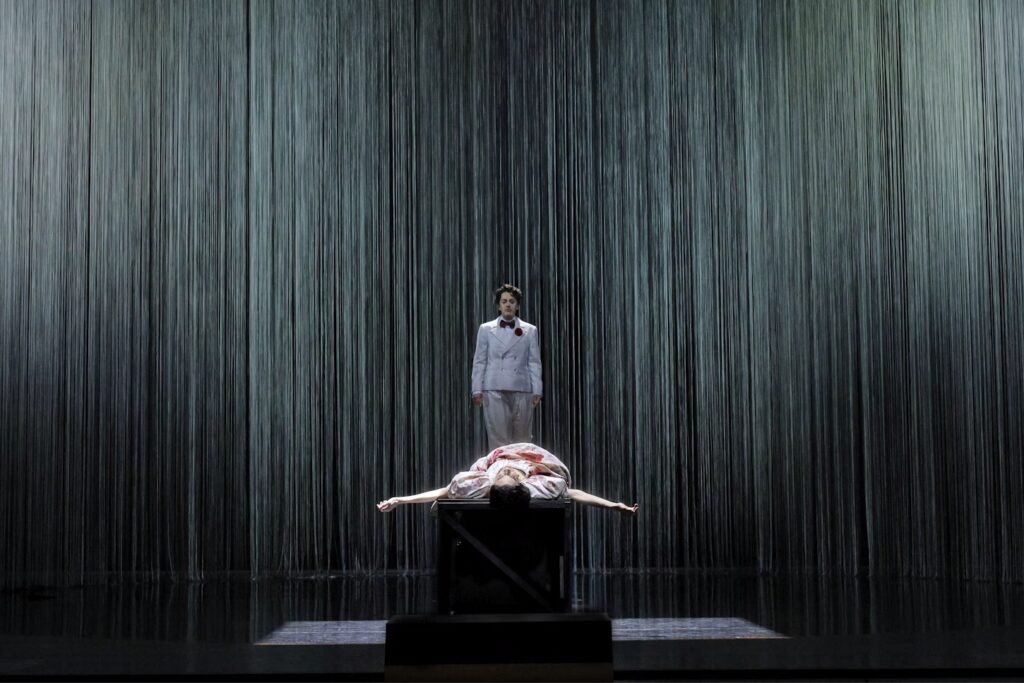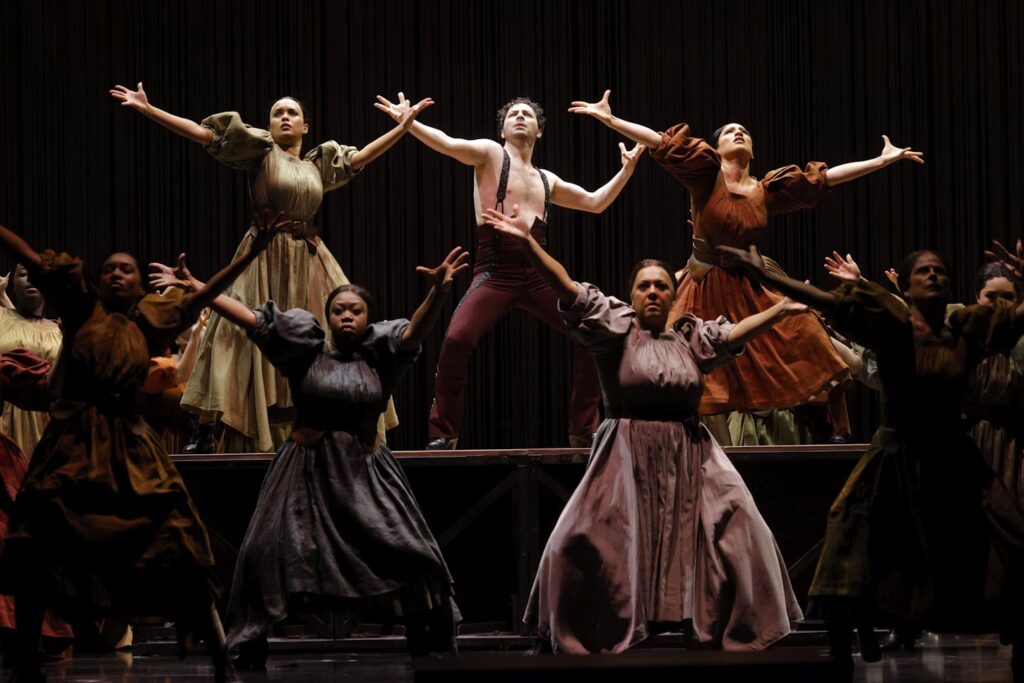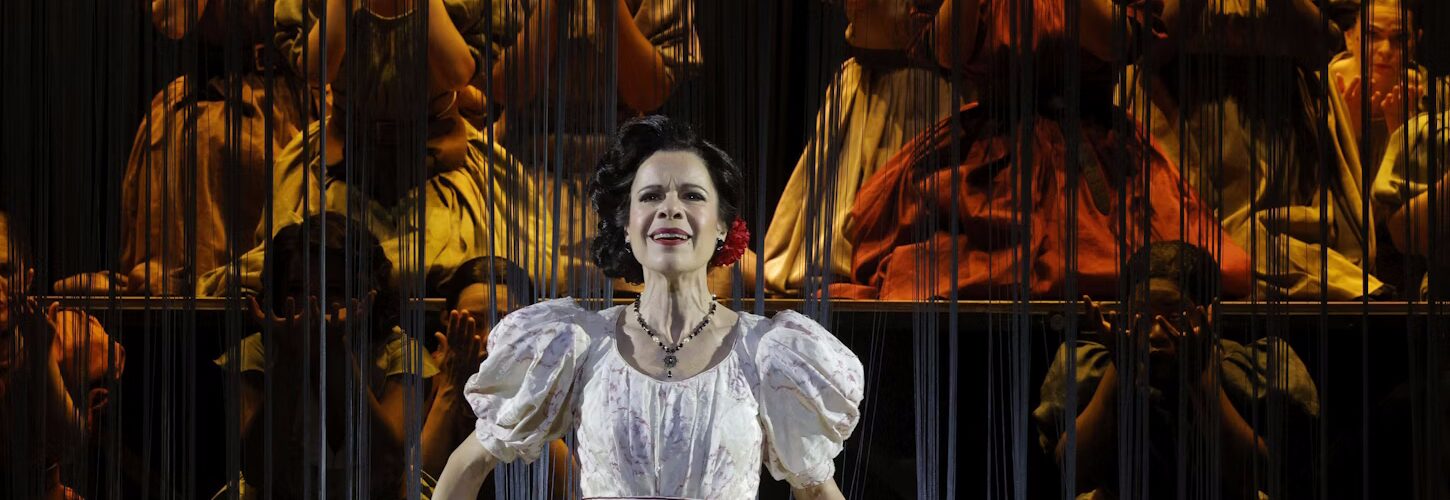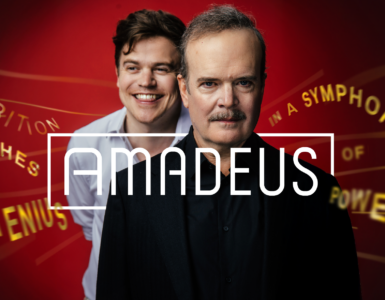
Lyrical, haunting, and timely, Ainadamar is a myth writ large in opera. Named for the “fountain of tears” in the town of Granada, the opera doesn’t so much tell the story of Federico García Lorca, the renowned Spanish civil-war era poet, as bathe us in its mythic waters. Lorca is executed as a political radical, and the pertinence of the opera’s depiction of Franco’s rise to power and dictatorship, which eventually led to the poet’s death, is lost on no-one in this Los Angeles audience.
The narrative in Ainadamar, such as it is, unfolds through the memories of actress Margarita Xirgu, played with drama and pathos (and so many costume changes) by Ana María Martínez, as she reflects on her relationship with Lorca, played with a brassy tenor in a pants role, the opera tradition of women portraying men, by Daniela Mack. What we witness is less a political intrigue than it is a meditation on freedom and revolution, with Lorca becoming a symbol for an unspecified revolution. “The beginning of every revolution is love,” Lorca declares as he dies.
Thematically, the work, which was composed by Osvaldo Golijov with a libretto by David Henry Hwang, is less an opera about historical fact than a mythopoetic ceremony in the tradition of medieval Catholic passion plays, which depict the death of Christ and, through that death in that tradition, the redemption of the world.

So, Lorca is Jesus here. The action of the opera is Lorca’s murder by Francoist soldiers, led by Ramón Ruiz Alonso, played by Alfredo Tejada, a flamenco singer making his LA Opera debut with striking flamenco runs. In the passion play tradition, we see Lorca’s suffering, sacrifice, and redemption, with his death ultimately galvanizing a collective consciousness. He is not simply a victim here, but a willing sacrifice—a man who refuses to flee, and so embraces his fate out of fidelity to his homeland, art, and identity.
In a traditional passion play, witnesses recount the suffering of Christ. In Ainadamar, this role is filled by Xirgu, Lorca’s muse and confidante, who tells and retells the story of his arrest and execution to her student Nuria, played by Vanessa Becerra, becoming a kind of Mary Magdalene figure—the keeper of memory, torn by survivor’s guilt, but devoted to transmitting the legacy of the one she loved. Xirgu reliving Lorca’s fate over and over—the act of performance itself—creates a ritual, echoing the stations of the cross, where each retelling is both confession and incantation. If Lorca’s immortality came from writing, Xirgu’s came from teaching.
Lorca’s queerness is acknowledged in one orgiastic fantasy scene but otherwise weirdly subsumed in what feels like an epic hetero love story, albeit one that is complicated by the fact that the actors portraying both characters are women. That’s Big Queer energy, but not particularly coherent in a message, and composer Golijov even acknowledges that the gender-switch for Lorca was more about the productions’ initial workshop cast than an intentional examination of gender. In Lorca’s death scene, though, surrounded by three basses and baritones on a table literally in the shape of a cross, there is a potent effect of emasculation that captures the way gay men are symbolically “made women” in a patriarchal society that equates womanhood with powerlessness. In the end, on his deathbed, Lorca’s cries are not for god, the father, but for his mother.
Conductor Lina González-Granados leads the orchestra through Golijov’s intricate score, weaving classical motifs with flamenco rhythms and pre-recorded sounds of water, a lush musical landscape with an epic scope that helps create a sense of movement through the poetic, light-on-plot structure. Director Deborah Colker, in her LA Opera debut, navigates a revolving ensemble of singers and epic park-and-bark set pieces, with flamenco choreography by Antonio Najarro.
Throughout the production, fragments of wood descend from the ceiling to float in the air and halo the actors, themselves standing on wooden stakes — the effect is something between the barricades in Les Mis, Christ’s crown of thorns, and a video game explosion. Jon Bausor was responsible for both scenic and costume design, with its dreamlike quality enhanced by Paul Keogan’s lighting and Tal Rosner’s video design, which projects falling water and giant figures alike around the performers. The performers’ voices similarly float, an etherial effect that completes the passion play ritual, grieving not only a man but a world destroyed, and that searching, through music, for the redemption of memory.
Performance Details:
- Venue: Dorothy Chandler Pavilion, 135 North Grand Avenue, Los Angeles, CA 90012
- Remaining Performances:
- Thursday, May 15, 2025, at 7:30 PM
- Sunday, May 18, 2025, at 2:00 PM
- Tickets: Available starting at $24.50
- Duration: Approximately 1 hour and 20 minutes, performed without intermission
- Language: Sung in Spanish with English and Spanish supertitles






